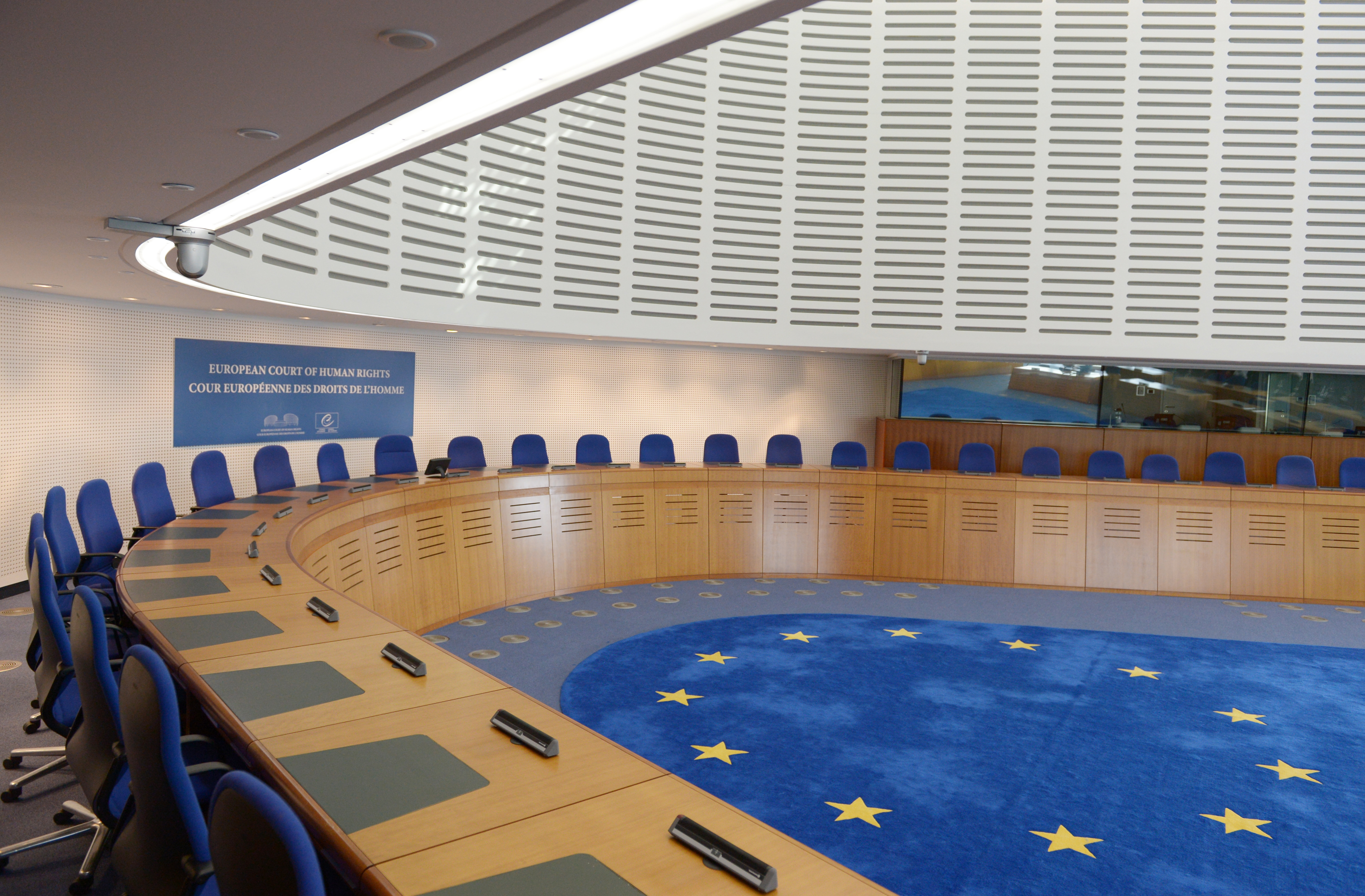Human rights
65 Years of Protecting Human Rights and Freedoms in Europe

The courtroom in the European Court of Human Rights.
© picture alliance / dpa | Rainer JensenOn 20 April 1959, the first special session of the European Court of Human Rights (ECtHR) took place in Strasbourg. Since then, the court has dealt with over a million complaints, issued 26,000 judgments, and made numerous decisions. What a groundbreaking milestone!
The ECtHR has significantly defended "the common public order of the free democracies of Europe with the object of safeguarding their common heritage of political traditions, ideals, freedom and the rule of law," as Síofra O’Leary, the President of the Court, aptly expressed last year. These principles form the basis of both liberal democracies and the rule-based international order, which, however, are constantly under attack. The ability to file an individual complaint with the Court makes an invaluable contribution to the protection of human rights – a hope for citizens across Europe and a model for other legal systems, such as the Inter-American Court of Human Rights.
The implementation of the ECtHR's decisions however in member states depends on their commitment to protection of human rights and democratic values. Recent political and military developments, including both expansionist military policies and the decline of democracies due to populism, inter alia, have presented significant challenges to the Court.
The Court and the evil of autocracy
Since 1953, some non-democratic states have signed the European Convention on Human Rights (ECHR). This was done with the promise of these countries to strengthen human rights and freedoms and to implement the judgments of the Court at the national level. The Court has made the most decisions to protect human rights in these countries so far. Even after Russia's expulsion from the Council of Europe, 217 judgments (out of 4,466 applications) have been issued against this country. Not only are the judgments of the Court consistently ignored, but Russia also attempts, along with its allies, to challenge the legitimacy of the Court. For instance, the country challenged the European human rights framework by creating alternative sub-regional forums, such as the so-called human rights mechanisms within the Commonwealth of Independent States (CIS). The aim of such parallel structures is undoubtedly not only to attack the legitimacy of the Court but also to undermine the universal human rights framework of the ECHR. It is therefore an international obligation of liberal democracies to proactively protect the ECtHR as the guardian of liberal values against authoritarian rhetoric.
Democratic backsliding
Populist and illiberal regimes pose a greater threat to the ECtHR than even autocratic governments. Once in power, they abuse democratic and rule of law institutions, such as national courts, thereby rejecting important judgments of the Court. In Hamidović v. Bosnia And Herzegovina and numerous other cases, the Court has stated that "parliamentary majority does not automatically mean democracy." Despite existing safeguards of the ECtHR, populists attack the Court under the guise of democracy to weaken it. They constantly question the "social legitimacy" of the Court by portraying it as foreign, corrupt, or against the national interests of the country. This is done tactically through propaganda and the abuse of media. Liberal democracies should not forget that Viktor Orbán referred to the Court as a threat to the security of Europe in 2017. This rejection by populist currents extends beyond the borders of Europe. Without resistance, as such erodes the European rule of law and threatens the existence of the Court.
Even after 65 years of success, protection is necessary
Strengthening democratic and rule of law institutions at the national level is the only way to defend European values and achieve the objectives of the ECtHR.
In Germany, we must not ignore the threats posed by right-wing populist forces, especially by the AfD, even if the threats do not currently appear to the extent seen in countries like Hungary and Poland. Since the establishment of the ECtHR, its judgments have led to improvements in various areas in Germany, such as the right to a fair trial, combating torture, and freedom of expression and assembly. This has been made possible, particularly through the national implementation of ECtHR judgments and support from the German Federal Constitutional Court (BVerfG). Therefore, the debate on further strengthening the structures of the BVerfG, especially the efforts by the Ministry of Justice and Dr. Marco Buschmann, is particularly commendable.
